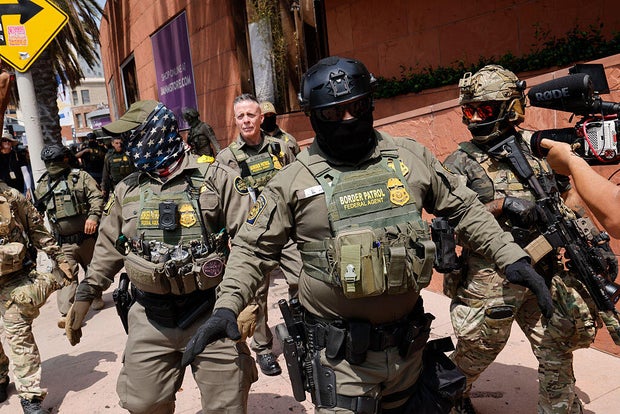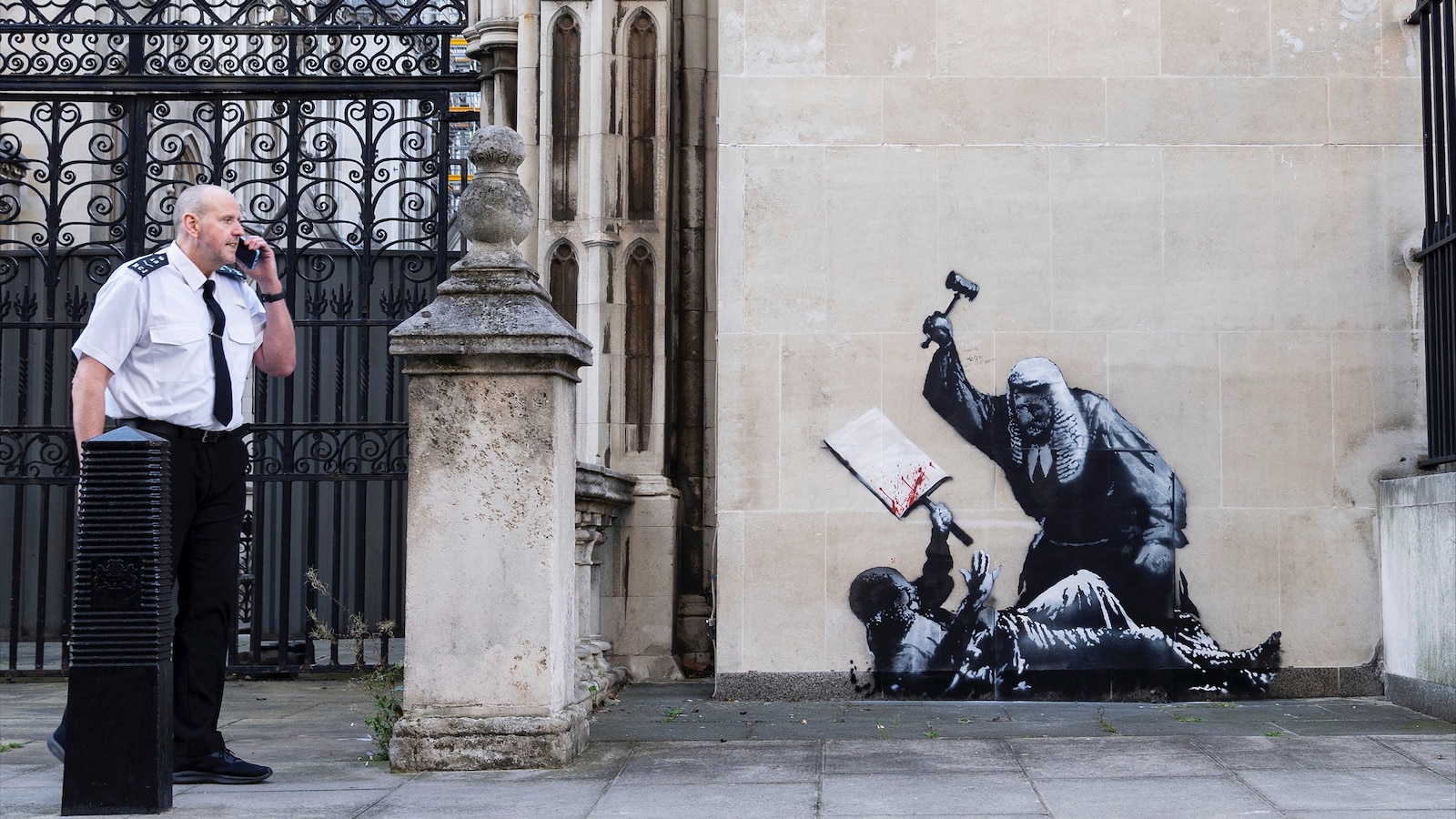Washington — The Supreme Court on Monday cleared the way for President Trump’s administration to resume sweeping immigration enforcement stops in the Los Angeles area as part of the president’s campaign to carry out mass deportations of people in the U.S. unlawfully.
The high court agreed to freeze a district court’s temporary restraining order that prevented federal immigration authorities from stopping people in Southern California without reasonable suspicion that they are in the U.S. unlawfully. That order barred officials from relying solely on certain factors like a person’s race or occupation as the basis for a detentive stop.
The U.S. Court of Appeals for the 9th Circuit largely rejected the Trump administration’s request to pause the district court’s order. The Justice Department then sought emergency relief from the Supreme Court.
Solicitor General D. John Sauer argued that the injunction issued by the district court hampered the ability of immigration authorities to enforce the nation’s immigration laws in Los Angeles and put them at risk of violating its order during routine investigative stops.
Justices Sonia Sotomayor, Elena Kagan and Ketanji Brown Jackson dissented.
“That decision is yet another grave misuse of our emergency docket,” Sotomayor, joined by Kagan and Jackson, wrote of the majority’s move. “We should not have to live in a country where the Government can seize anyone who looks Latino, speaks Spanish, and appears to work a low wage job. Rather than stand idly by while our constitutional freedoms are lost, I dissent.”
The Los Angeles area, located within the Central District of California, is home to nearly 20 million people. The Trump administration estimates that 2 million of its residents are in the country illegally and has said that the region is a “top enforcement priority.”
In June, federal immigration agencies began undertaking efforts to ramp up immigration enforcement in Los Angeles, which Mr. Trump called the “largest mass deportation operation … in history.” After protests broke out in response to enforcement operations at workplaces in the region, the Trump administration deployed members of the California National Guard and active-duty Marines to Los Angeles in June to protect federal property and immigration agents.
The legal challenge
Carlin Stiehl / Los Angeles Times via Getty Images
The dispute before the Supreme Court arose after three men who are in the U.S. illegally were arrested and filed a lawsuit seeking release from detention. The men, who live in Pasadena, were working as day laborers and were arrested in mid-June as part of a targeted enforcement action at a donut shop, according to court papers. They have since been released on bond.
The migrants, later joined by two U.S. citizens and four organizations, challenged the Trump administration’s immigration raids, alleging that officers violated their Fourth Amendment rights when conducting patrols and other enforcement operations. One of the plaintiffs, Brian Gavidia, was confronted by armed agents while working at a tow yard and repeatedly told officers he was a U.S. citizen as they tried to detain him.
The plaintiffs claimed that Immigration and Customs Enforcement agents were targeting certain businesses and conducting “indiscriminate immigration operations.”
Last month, a federal district court agreed to issue a temporary restraining order that blocked federal agents from conducting immigration enforcement stops without reasonable suspicion that the person they are stopping is in the U.S. illegally. The order from U.S. District Judge Maame Ewusi-Mensah Frimpong specified that agents could not rely solely on four factors as grounds for detaining people: apparent race or ethnicity; speaking Spanish or speaking English with an accent; being at a specific location like a bus stop, agricultural site or day laborer pick-up site; and the type of work a person does.
In her decision, Frimpong, who was appointed by President Joe Biden, wrote there was a “mountain of evidence” that “roving patrols” were indiscriminately stopping and detaining people without reasonable suspicion in violation of the Fourth Amendment.
But in the request for emergency relief from the Supreme Court, Sauer, the solicitor general, called Frimpong’s injunction a “straitjacket on law-enforcement efforts.”
“The injunction wrongly brands countless lawful stops as unconstitutional, thereby hampering a basic law-enforcement tool, while turning every single stop in the District into a potential contempt trap,” he wrote in a filing. “No agent can confidently enforce the law and engage in routine stops when the district court may later refuse to credit that the stop reflected additional, permissible factors and instead treat virtually any stop as contemptuous misconduct.”
Lawyers for the plaintiffs said that the Trump administration’s pattern of conducting immigration enforcement stops without reasonable suspicion has done “immeasurable” harm.
“Numerous U.S. citizens and others who are lawfully present in this country have been subjected to significant intrusions on their liberty. Many have been physically injured; at least two were taken to a holding facility. And all have had to endure the prospect of unavoidable future intrusions based on broad demographic factors like the color of their skin,” they told the Supreme Court in a filing.
The lawyers warned that, if allowed, the Trump administration’s practices could ensnare millions of people in Southern California who are U.S. citizens or legally in the country in an “immigration dragnet.”
“The government’s extraordinary claim that it can get very close to justifying a seizure of any Latino person in the Central District because of the asserted number of Latino people there who are not legally present is anathema to the Constitution,” they said.
Source link



